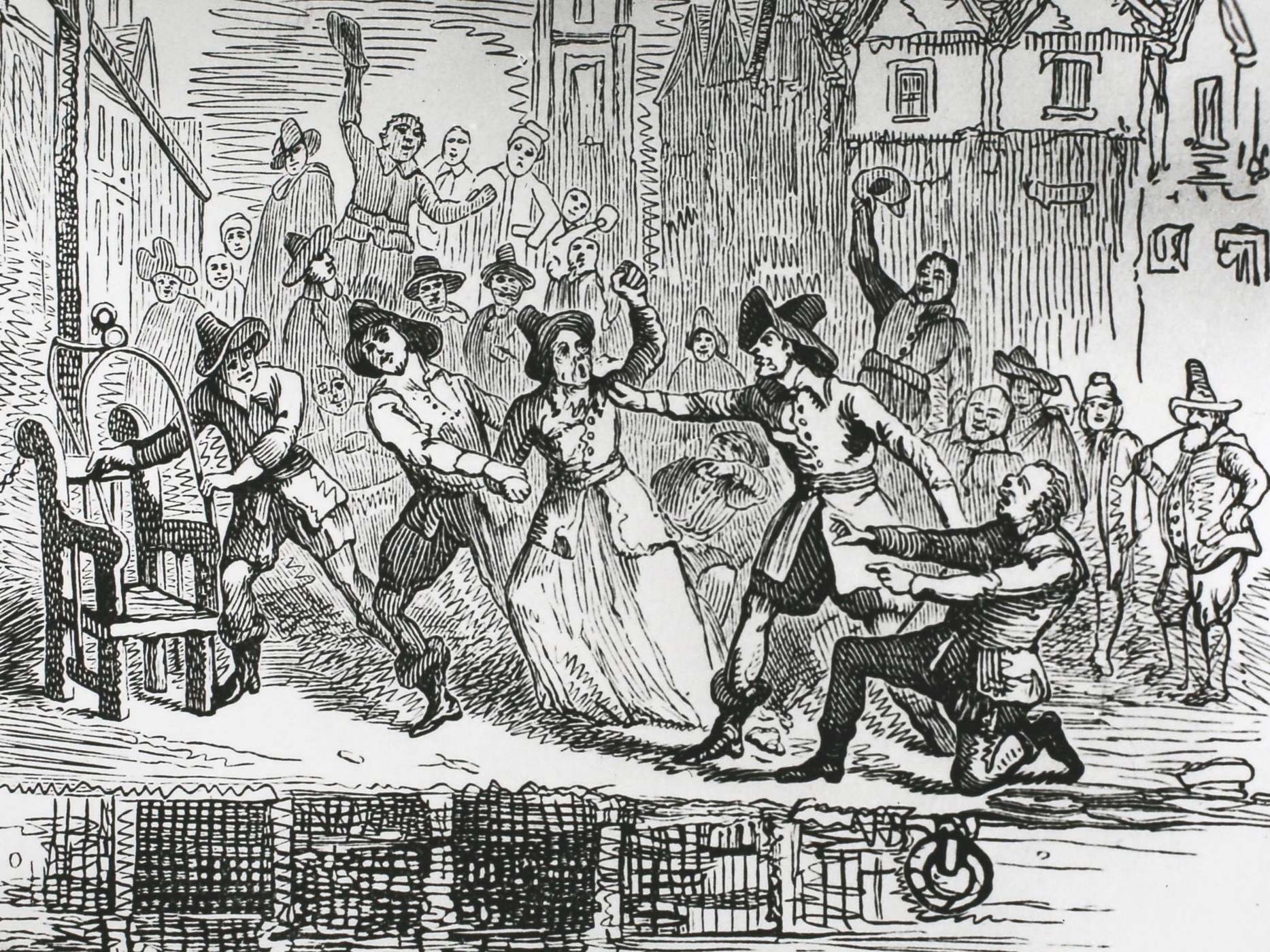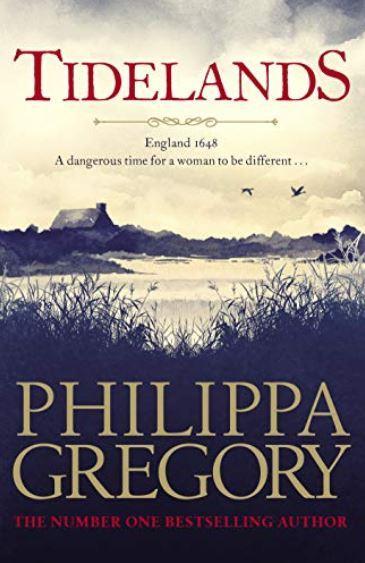Why a book about witch trials feels weirdly relevant today
Philippa Gregory’s ‘Tidelands’ is a sobering reminder that fear of witches looked a lot like shorthand for the fear and loathing of women’s bodies, writes books columnist Ceri Radford


Your support helps us to tell the story
From reproductive rights to climate change to Big Tech, The Independent is on the ground when the story is developing. Whether it's investigating the financials of Elon Musk's pro-Trump PAC or producing our latest documentary, 'The A Word', which shines a light on the American women fighting for reproductive rights, we know how important it is to parse out the facts from the messaging.
At such a critical moment in US history, we need reporters on the ground. Your donation allows us to keep sending journalists to speak to both sides of the story.
The Independent is trusted by Americans across the entire political spectrum. And unlike many other quality news outlets, we choose not to lock Americans out of our reporting and analysis with paywalls. We believe quality journalism should be available to everyone, paid for by those who can afford it.
Your support makes all the difference.Step aside, Anne Boleyn. The latest heroine from historical fiction powerhouse Philippa Gregory is the lowly Alinor Reekie, a creation who scrapes a living as a midwife and herbalist. Because this is the deeply superstitious England of 1648, knowing herbs and being a woman is a dangerous combination. Gregory’s new novel Tidelands, the first in a series, swaps the royal courts for the equally treacherous terrain of a rural England riven by civil war and eaten away from the inside by poverty, inequality and misogyny.
As with all good historical fiction, the novel offers that uncanny combination of distancing detail and themes that feel only too close to us today. It’s a world where children drank ale for breakfast, the Sussex coast was unclaimed marshland and teenaged girls bent their backs gathering in the harvest of a pre-mechanical age. It’s also a world where if you were a man who knew things about medicinal plants, you were a respected apothecary, and if you were a woman, you were at best a helpful neighbour who might get the odd turnip in thanks. When you’re immersed in Gregory’s novel, it feels depressingly unsurprising that according to the latest data we’re still looking at a 202-year wait for the gender pay gap to close.
The dark force driving the story towards (minor spoiler alert) its chill conclusion in the village mill pond is the fear of witchcraft. Having been abandoned by her abusive husband, Alinor is already suspect, fitting neither of the socially acceptable categories of wife or widow. Her expertise in herbal remedies, learnt from her mother, is a liability as much as a livelihood. Finally, an affair with a hot renegade Catholic priest hiding out from Cromwell’s puritans proves the sweaty catalyst for Alinor’s downfall.
Witches have always provided inspiration for culture of every kind, from the atmospheric plotters in Macbeth via Arthur Miller’s The Crucible to the curiously enduring bright green visage of hit musical Wicked. In pop culture, witches are sanitised and sexualised, the stuff of mildly rebellious children’s stories or tight-laced Halloween bodices. Tidelands is a sobering reminder that the original concept of witchcraft in Europe was sexual but not remotely sexy. In fact, fear of witches looked a lot like batsh*t shorthand for the fear and loathing of women’s bodies.
In the climactic scene of Tidelands, Alinor is stripped and searched for “witch’s marks”, which could include strangely shaped birthmarks or, most damningly of all, an extra nipple used for suckling “familiars” – animals like cats or toads that were thought to be satan’s little helpers. Another common belief about witches during the 400-year period of persecution was that they literally had sex with demons.
If this all seems too ridiculous, it’s worth remembering that, one, tens of thousands of people were executed for witchcraft in Europe and North America, and two, there are over a hundred how-to books on witchcraft for sale on Amazon right now, teaching the credulous reader how to cast spells with candles or tap into the magic power of lumps of crystal. Finally, the last “legal” execution for witchcraft in the British Isles was not in some murky medieval past but in 1727, when the enlightenment was supposedly in full flow and an elderly Scottish woman named Janet Horne was nonetheless coated in tar, paraded through the streets and burned alive.
Tidelands spares the reader such horror, but it provides a more subtle drip-feed of dread. Alinor is constantly watching what she says, wary of her reputation in a historical context with hypocritical and punishing sexual mores. As Gregory evocatively captures, she lives in a typically devout community, one where a church court decrees that a woman should be stripped and humiliated for having extramarital sex at the harvest festival, while the man she had sex with faces precisely zero consequences. One of the most sinister moments comes just before the finale, when a crowd gathered for Alinor’s daughter’s wedding turns on her to accuse her of theft and witchcraft, like a really extreme version of Don’t Tell the Bride.

“The room was silent. The silence thickened, curdled. Slowly, as slowly as a thought dawning, everyone turned to Alinor. Everyone looked at Alinor, who… was known as a cunning woman with skills beyond this world.”
Pretty soon, everyone is also enthusiastically baying “swim her”, the euphemistic term for holding a suspect underwater. The theory went that a witch would float to avoid water, associated with holy baptism, while a normal person would sink, proving her innocence even if she inconveniently died in the process.
We may be a long way away from ducking stools, but it’s not so much of a stretch to see parallels in the enduring culture of slut-shaming, lingering taboos around periods, and the way women in particular are judged, hounded and threatened on social media. In the seventeenth century, women were punished as scolds for speaking out; today, according to the International News Safety Institute, female journalists are three times more likely to be bullied online by their male colleagues.
The political culture is just as toxic. It’s only been eight years since Australia’s Tony Abbott condoned “ditch the witch” as a slogan against the then prime minister Julia Gillard; four years since Donald Trump decried TV moderator Megyn Kelly for having “blood coming out of her wherever”. Despite high-profile female leaders like Angela Merkel or Jacinda Ardern, women remain woefully under-represented in politics around the world.
Misogyny, like superstition, dies slowly – if at all. Tidelands is a spellbinding read and an evocative glimpse at our strangely familiar past.
‘Tidelands’ is released on 20 August
Join our commenting forum
Join thought-provoking conversations, follow other Independent readers and see their replies
Comments